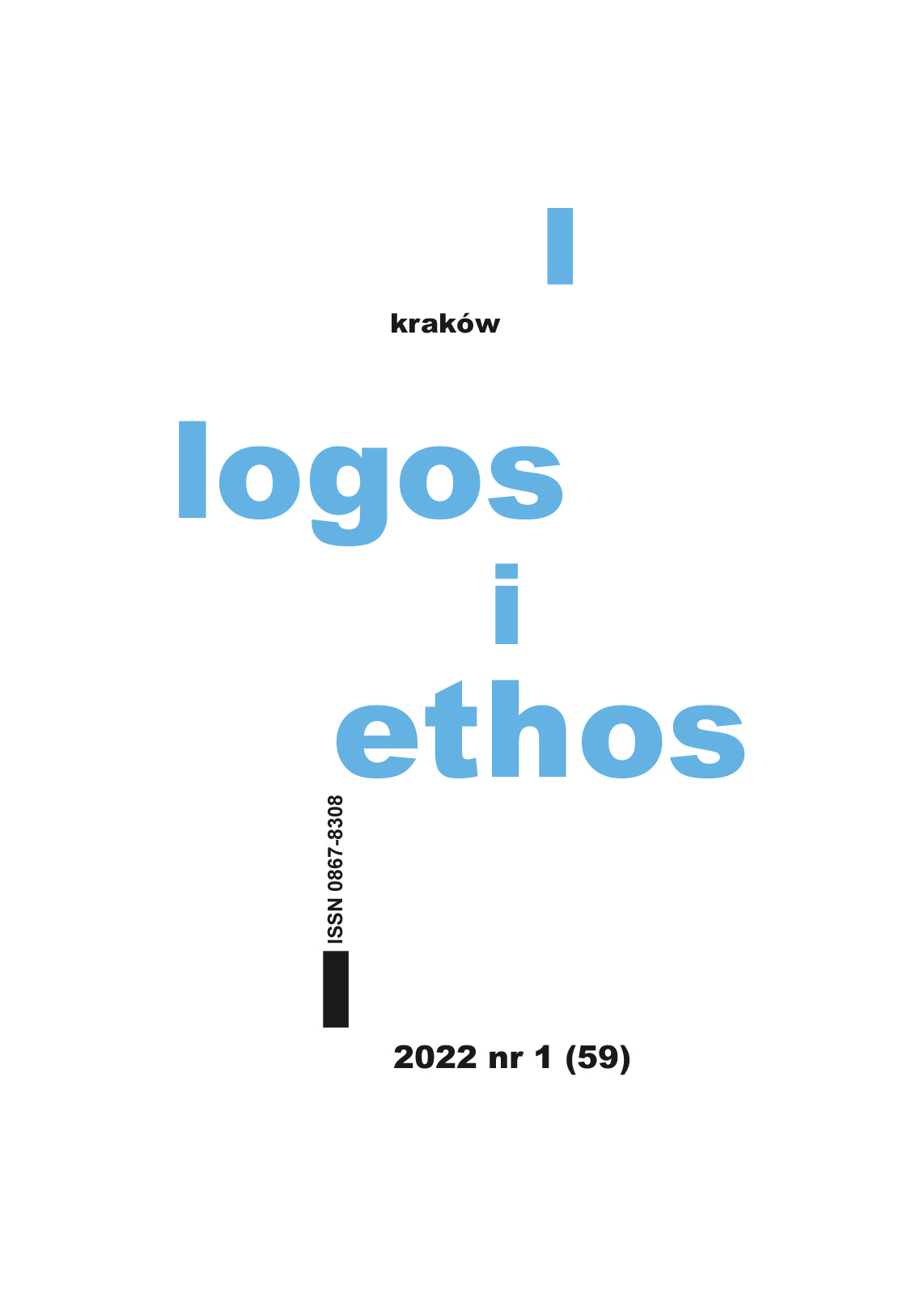The (Un)Free Will
DOI:
https://doi.org/10.15633/lie.59111Keywords:
free will, unfree will, freedom, thinking, postmodernism, posthumanismAbstract
The author discusses the question of human free will, which seems incredibly these days. As the posthumanist trends have declared the death of the subject, the issue has been also put in question. The questions posed in the article are: is freedom a category to define humanity today and does it serve as a basis of all kinds of relations (moral, legal, economic, social ones, etc.) or, maybe, has the time come to announce the reign of unfree will? To find some answers to those questions, the author studies how we lost the control of the will and answers the question of why the will has been enslaved and what its relation to the power of thinking means for a human being.
References
Arendt H., Wola, przeł. R. Piłat, Czytelnik, Warszawa 2002.
Bednarek J., Maliński J., Od Redakcji, w: R. Dolphijn, I. van der Tuin, Nowy materializm. Wywiady i kartografie, przeł. J. Czajka, A. Handke, J. Maliński, A. Marcisz, C. Rudnicki, T. Wiśniewski, Fundacja Machina Myśli, Gdańsk–Poznań–Warszawa 2018, s. 5–8.
Bendyk E., Kryzys tożsamości, „Niezbędnik Inteligenta. Polityka” 1 (2007), s. 56–59.
Bobzien S., Determinism and Freedom in Stoic Philosophy, Clarendon Press, Oxford 2004.
Braidotti R., Ku posthumanistyce, przeł. M. Markiewicz, „Machina Myśli” 22.04.2018, http://machinamysli.org/2968-2/(05.02.2021).
Dihle A., The Theory of Will in Classical Antiquity, The University of California Press, Berkeley–Los Angeles–London 1982.
Dolphijn R., van der Tuin I., Nowy materializm. Wywiady i kartografie, przeł. J. Czajka, A. Handke, J. Maliński, A. Marcisz, C. Rudnicki, T. Wiśniewski, Fundacja Machina Myśli, Gdańsk–Poznań–Warszawa 2018.
Doyal L., Gough I., A Theory of Human Need, Palgrave Macmillan, Basingstoke 1991.
Duch W., Neuronauki i natura ludzka, https://fizyka.umk.pl/publications/kmk/11-Natura-Ludzka.pdf (05.02.2021).
Frede M., A Free will: Origins of the Notion in Ancient Thought, University of California Press, Berkeley 2021.
Gan-Krzywoszyńska K., Leśniewski P., Kazimierz Ajdukiewicz (1890–1963), Wydawnictwo Naukowe Uniwersytetu im. Adama Mickiewicza w Poznaniu, Poznań 2016 (Biografie Rektorów Uniwersytetu im. Adama Mickiewicza w Poznaniu).
Heller M., Kosmiczny problem wolności, https://www.kul.pl/kosmiczny-problem-wolnosci-ks-prof-dr-hab-michal-heller,art_69916.html (05.02.2021).
Heller M., Wszechświat jest tylko drogą. Kosmiczne rekolekcje, Wydawnictwo Znak, Kraków 2012.
Herman G., Object-Oriented Ontology: A New Theory of Everything, Penguin Books, London 2020.
Hohol M., Ucieleśniony podmiot: od wspólnej rozmaitości do „Ja”, w: Spór o podmiotowość: Perspektywa interdyscyplinarna, red. A. Warmbier, Księgarnia Akademicka, Kraków 2016, s. 177–190.
Hohol M., Wołoszyn K., Umysł ucieleśniony, czyli jaki?, https://www.copernicuscenter.edu.pl (09.02.2021).
Janet P., Materializm współczesny, przeł. Z. G., Drukarnia Wł. L. Anczyca i SP, Kraków 1878.
La Mettrie J. O., Człowiek-maszyna, przeł. S. Rudniański, Państwowe Wydawnictwo Naukowe, Warszawa 1953.
Luter M., O niewolnej woli. De servo arbitrio, przeł. W. Niemczyk, https://www.luteranie.pl/materialy/o_niewolnej_woli_de_servo_arbitro,241.html (06.02.2020).
Manteca X., Mainau E., Temple D., Czym jest dobrostan zwierząt?, https://www.fawec.org/pl/publikacje/30-dobrostan/202-czym-jest-dobrostan-zwierzat (29.01.2021).
Mrożek S., Dziadek Ignacy, w: S. Mrożek, Małe listy, Oficyna Literacka Noir su Blanc, Warszawa 2000, s. 119–124.
Newkirk I., Wolność dla zwierząt – prawdziwa historia, Animal Liberation Front, przeł. R. Rupowski, Wydawnictwo „Vega!Pol”, Opole 2005.
Nie ma szczęścia bez myślenia, rozmowa J. Żakowskiego z T. Gadaczem, „Polityka” 17.05.2019, https://www.polityka.pl/tygodnikpolityka/klasykipolityki/1791880,1,prof-gadacz-nie-ma-szczescia-bez-myslenia.read (11.02.2020).
Nie ma szczęścia bez myślenia, rozmowa J. Żakowskiego z T. Gadaczem, „Polityka” 17.05.2019, https://www.polityka.pl/tygodnikpolityka/klasykipolityki/1791880,1,prof-gadacz-nie-ma-szczescia-bez-myslenia.read (11.02.2020).
Ryle G., Czym jest umysł?, przeł. W. Marciszewski, Państwowe Wydawnictwo Naukowe, Warszawa 1970.
Perles F., The Gestalt Approach, and: Eyewitness to Therapy, Palo Alto, Science & Behavior Books, [Ben Lomond, California] 1973.
Rainie L., Wellman B., Networked: The New Social Operating System, The MIT Press, Cambridge, Massachusetts, London 2012.
Stróżewski W., Osoba i wartość, w: Wobec samotności, red. A. Kaczmarek, A. Kulig, K. Machtyl, Poznań 2014, s. 55–69 (Zeszyty Naukowe Centrum Badań im. Edyty Stein, 12).
Tokarczuk O., Czuły narrator, Wydawnictwo Literackie, Kraków 2020.
Tomasello M., Kulturowe źródła ludzkiego poznawania, przeł. J. Rączaszek, Państwowy Instytut Wydawniczy, Warszawa 2002.
Vonnegut Jr. K., Rzeźnia numer pięć, przeł. L. Jęczmyk, Państwowy Instytut Wydawniczy, Warszawa 1990.
Whitehead A. N., Nauka i świat nowożytny, przeł. M. Kozłowski, M. Pieńkowski OP, Kraków 1987.
Whitehead A. N., Process and Reality, The Free Press, New York 1969.
Wieczorek K., Rozum w poszukiwaniu prawdy o wolności, „Śląskie Studia Historyczno-Teologiczne” 29 (1996), s. 163–165.
Wilson M., Six Views of Embodied Cognition, „Psychonomic Bulletin & Review” 9 (2002), s. 625–636.
Downloads
Published
Issue
Section
License

This work is licensed under a Creative Commons Attribution 4.0 International License.
The following rules apply to copyright:
1. The author declares that he or she has full copyright to the work, and such copyright it is not limited to the extent applicable to this declaration, that the article is an original work and that it does not infringe any third-party rights.
2. The author agrees to a free-of-charge, non-exclusive and non-restricted use of the work by Pontifical University of John Paul II in Krakow i.e.:
- to record and duplicate: make copies of the work by means of printing, reprography, magnetic or digital storage;
- to circulate the original or the copies of the work (disseminate, lend or lease the original or copies thereof, publicly display, screen or make the work publicly available so that everyone is able to access it at the time and in place they wish to do so);
- to include the work in a compilation;
- the Pontifical University of John Paul II in Krakow may grant sublicenses Creative Commons Acknowledgement of authorship-Non-commercial use-Without derivative work 3.0 Poland
- the author and the title of the work will be listed,
- the place of publication (name of the periodical and an Internet link to the originally published work),
- the work will be distributed in a non-commercial way,
- no derivative works will be created.
The UPJPII Press does not waive any of its copyrights to any target group.
If you want to publish the text in Logos and Ethos, you must sign the license. However, the signing takes place at a later stage of publishing. Check the license: [license_en.pdf]

